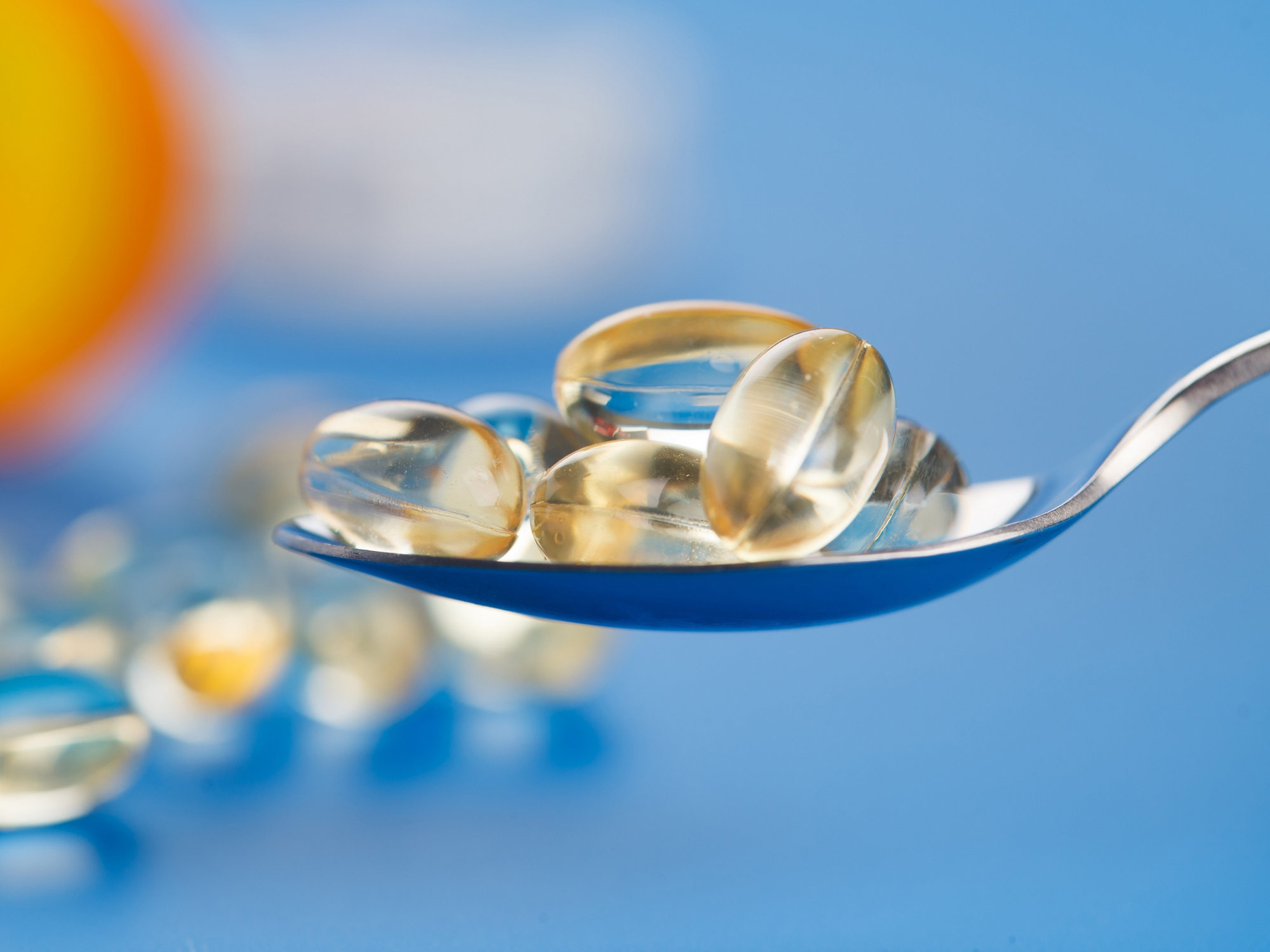Get Easy Health Digest™ in your inbox and don’t miss a thing when you subscribe today. Plus, get the free bonus report, Mother Nature’s Tips, Tricks and Remedies for Cholesterol, Blood Pressure & Blood Sugar as my way of saying welcome to the community!
This disease-fighting D works 40 percent better

You probably already know that getting enough vitamin D is essential for fighting disease. It can improve your heart health, ward some of the worst illnesses of aging, keep your bones strong, balance your blood sugar and more.
But here’s the thing….
Not all vitamin D is created equal. If you get your vitamin D from a supplement, you have the option to choose between vitamin D2 and vitamin D3. And you better be sure you choose the right kind, because one doesn’t work nearly as well.
So which one should you choose if you want vitamin D’s benefits — which include slowing aging and living healthier?
Well, if you’ve been following recent health updates, you may know the answer — vitamin D3.
But the fact is, a lot of people are still confused about the difference between D2 and D3. And more importantly, they don’t know that D2’s not as effective.
That’s because national health organizations like the National Institutes of Health are still saying that both forms of vitamin D work just as well. But they don’t. And research proves it…
D3 demolishes D2
A study from researchers at the University of Surrey in the United Kingdom found that women absorb vitamin D3 supplements significantly better — like over 40 percent better — than D2 supplements.
The study included 335 women. Some received a D2- or D3-infused biscuit, while others received D2- or D3-infused juice. And, of course, one group received a placebo.
The women who received D3 in a biscuit or juice raised their vitamin D levels by 74 and 75 percent, respectively. The women who received D2 in a biscuit or juice, on the other hand, only raised their vitamin D levels by 33 to 34 percent.
That means D3 was nearly twice as effective at raising vitamin D levels. So there should be no doubt in your mind… D3 is the form that benefits the body most.
And just to underscore the importance of getting enough vitamin D (from a supplement or otherwise), I’ll share one more finding from the study…
Women who received a placebo saw their vitamin D levels drop by a whopping 25 percent! That’s proof your D-levels drop quickly when you’re not making a concerted effort to keep them up…
D3 vs. D2: What’s the difference?
Now, just to clarify, the major difference between the two forms of D is that D2 comes from plant sources (like mushrooms) and D-3 comes from animal sources (like dairy, eggs and meat). D3 is also the kind of vitamin D your body makes when you’re out in the sun.
To make vitamin D3 supplements, 7-DHC, the same precursor in human skin, is extracted from sheep’s lanolin and exposed to UVB light, mimicking the process by which D3 is produced when your skin is exposed to sunlight. That makes D3 supplements the most natural form of the vitamin.
So it makes perfect sense that D3 is easier for your body to absorb and use, and this isn’t the only study that proves it…
Other studies have shown that D3 decreases risk of death from all causes far better than D2 — and that D3 helps you maintain vitamin D levels better in the winter when there’s not a lot of sunlight.
Once you make sure you’re using the right kind of vitamin D, you need to make sure the dosage is right for you. For some information on determining that, follow this common sense rule on vitamin supplementation.
It’s also important to know that vitamin D is not a one-size-fits-all vitamin. For that reason, optimizing vitamin D status needs to be personalized.
Editor’s note: Discover how to live a cancer prevention lifestyle — using foods, vitamins, minerals and herbs — as well as little-known therapies allowed in other countries but denied to you by American mainstream medicine. Click here to discover Surviving Cancer! A Comprehensive Guide to Understanding the Causes, Treatments and Big Business Behind Medicine’s Most Frightening Diagnosis!
- “Worldwide health authorities urged to rethink vitamin D guidelines.” — MedicalXpress. Retrieved July 12, 2017.
- “Vitamin D guidelines may be changed following new study.” — Medical News Today. Retrieved July 12, 2017.
- “Vitamin D: Fact Sheet for Health Professionals.” — National Institutes of Health. Retrieved July 12, 2017.
- Bjelakovic, et al. “Vitamin D supplementation for prevention of mortality in adults.” — Cochrane Database Systematic Reviews. 2011 Jul 6;(7).
- F. Logan, et al. “Long-term vitamin D3 supplementation is more effective than vitamin D2 in maintaining serum 25-hydroxyvitamin D status over the winter months.” — British Journal of Nutrition. 2013 Mar 28;109(6):1082-8.













